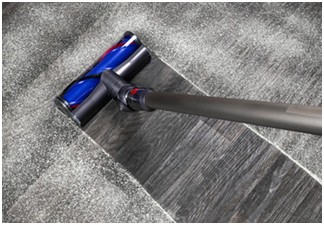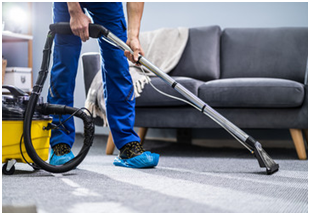Vacuum Buyers Cleaners Guide
Table of contents

Since their initiation in the late 19th century, vacuum cleaners have been staple tools in both domestic and commercial applications.
A vacuum cleaner is one of the definitive cleaning appliances out there. Not only are vacuums ideal for cleaning up dust and debris on the ground, but most models also come with accessories such as power wands that allow you to clean curtains and upholstery. The kind of vacuum cleaner required will change from job to job and from room to building.
Factors to Consider While Purchasing a Vacuum Cleaner
When it finally comes down to making your choice, no matter the kind or brand of vacuum you’re picking from, there are some universal considerations.
Cost
Even vacuums that fall into the same group of cleaning types can vary drastically when it comes to cost. An upright vacuum may fall within a price range of anyplace between just under a hundred dollars to over 400 dollars. Find a vacuum with a warranty you’re happy with and carry the specifications to get the job you need to complete appropriately.
Uses
Versatility is a pretty apparent thing to think about. Pick a vacuum that will most harmoniously fit in with both your cleaning schedule and the environment you will be regularly cleaning.
Aesthetics
While this may not seem the most constraining factor to consider, it’s certainly not something to take for granted. Select a model that you won’t get tired of using or looking at throughout repeated uses; pick something you think is attractive.
Bags vs. Bin
The debate over whether to use a vacuum bag or dustbin (cup) will perhaps go on for as long as vacuums continue to exist. Each has its advantages and disadvantages, and each consumer out there has a unique preference. Do a little research and find your favorite debris-storage method.
Noise Level

This is another consideration that might slip your mind, though it is vital to consider. An overly-loud vacuum won’t disturb the operator, but can also bother other persons in the room or home.
Add-ons Accessible
Although most models these days do come with onboard tools or accessories, it’s crucial to see which ones are included. Choose a cleaner that has add-ons that go past novelty and help you in your cleaning.
Reach
Most vacuums’ utility comes from what areas it’s able to reach and clean. A vacuum that has a longer cord or even a cordless, battery option is always going to be more useful than one that keeps your cleaning range within 20 feet. Generally, the longer the cord, the better. Telescoping power wands are always a happy addition also.
HEPA Filter
A HEPA-grade filter, which is categorized as such if it meets certain EPA regulations, seems like it would always be ideal. Nevertheless, it may be the case that whatever environment you’re typically cleaning might not particularly benefit from a HEPA filter. Likewise, so powerful and respected brands don’t even utilize this ubiquitous HEPA filter. For example, Dyson is a trustworthy brand that sports its trademarked technology instead of traditional air filters.
Weight & Size
It is not always the case that a heavier and bigger vacuum is more superior. And definitely, it may not be most efficient. Pick a model with a size suitable to its amount of power, and of course, pick a model with a force of suction suited to your cleaning needs. Remember: you don’t require a heavy, industrial vacuum for your kids’ playroom, no matter how messy it may get.
Power
In a way, this factor is closely related to weight and size. Be careful not to purchase a model that is so powerful that it damages your floors or carpets. On the flip side, don’t find yourself stuck with a cleaner that doesn’t have the suction power needed for the tasks at hand.
Cord
When it comes to a vacuum’s cleaning reach, the cord is a consideration. And then some vacuums don’t even contain a cord and function solely off battery power. Some models have the choice to use one or the other as a power source. For a lot of consumers, this is just a matter of preference.




Log In
Create New Account